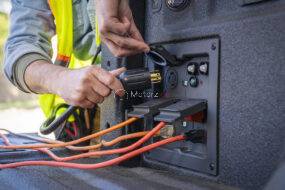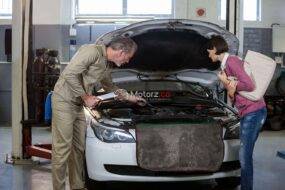Stalling Causes and Prevention of Stalling Issues. in various contexts, is often an undesirable and frustrating occurrence. Whether it’s a vehicle coming to an abrupt halt, a project losing momentum, or an engine struggling to maintain its pace, stalling can disrupt the smooth flow of processes. In this article, we will explore the causes of stalling in different scenarios and discuss effective preventive measures.
Automotive Stalling
One of the primary reasons for stalling Stalling Causes in vehicles is a malfunctioning fuel system. This can include issues with the fuel pump, fuel injectors, or a clogged fuel filter. Faulty spark plugs, ignition coils, or a malfunctioning ignition control module can lead to intermittent stalling. A clogged air filter or a malfunctioning mass airflow sensor can disrupt the proper air-fuel mixture, causing the engine to stall.
Sensor Malfunctions
Modern vehicles rely heavily on sensors. Stalling Causes Malfunctioning sensors such as the crankshaft position sensor or the oxygen sensor can lead to stalling. Scheduled maintenance, including fuel system cleaning, spark plug replacement, and air filter checks, can prevent many stalling issues. Use high-quality fuel to prevent clogs and ensure proper combustion. Address any warning lights or unusual sounds promptly to prevent minor issues from escalating.
Project Stalling:
Projects can stall when there is a lack of clear goals, objectives, or direction. Insufficient resources, whether it be manpower, finances, or technology, can cause projects to come to a standstill. Poor communication among team members or stakeholders can lead to misunderstandings and project delays. Expanding project scope beyond initial plans without proper evaluation can overwhelm the team and stall progress.
Detailed Planning
Develop a comprehensive project plan with clear goals, timelines, and resource allocations. Foster open and transparent communication channels within the team and with stakeholders. Adopt agile methodologies to allow for flexibility and adaptability to changes.
Engine Stalling (Non-Automotive)
In industrial settings, engine stalling can occur due to overheating, often caused by poor cooling systems or excessive workload. Lack of proper lubrication can lead to increased friction, resulting in stalling. Issues with electrical components, such as faulty wiring or malfunctioning sensors, can cause engine stalling. Wear and tear of mechanical parts can also contribute to stalling.
Prevention:
Implement routine maintenance checks to identify and address potential issues before they escalate.
Efficient Cooling Systems: Ensure that cooling systems are adequate for the workload to prevent overheating.
Quality Lubricants: Use high-quality lubricants to reduce friction and extend the life of mechanical components.
Monitoring Systems: Implement monitoring systems to detect electrical or mechanical failures in real-time.
Conclusion
In conclusion, Stalling Causes can manifest in various aspects of life, from vehicles to projects and industrial engines. Understanding the specific causes in each context and implementing preventive measures is crucial for maintaining smooth and efficient operations. Whether it’s addressing fuel system issues in a car, fostering effective communication in a project, or ensuring proper maintenance in industrial engines, proactive steps can significantly reduce the occurrence of stalling and keep things moving forward.





